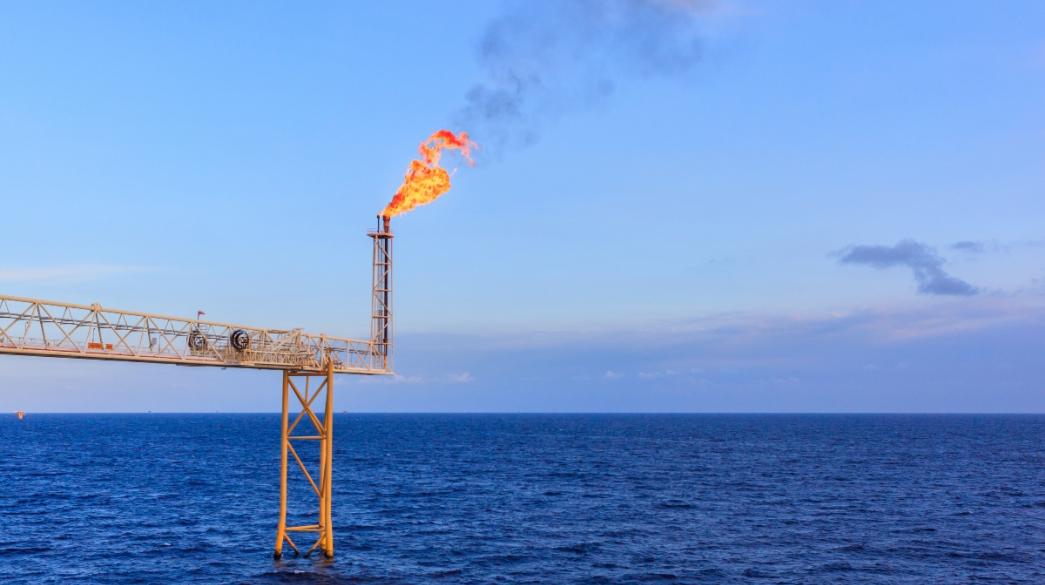Energy is the common denominator in three emblematic infrastructure investments on Greek soil which are drawing the interest of US players via the state development bank, known as the Department of Finance Corporation. Both in the gas infrastructure of Kavala and Alexandroupolis, as well as with the Elefsina Shipyards, energy is the keyword and the strategic goal is to weaken the influence of Russia's Gazprom.
In the case of the underground natural gas storage unit, that has an estimated budget of 300-400 million euros, the tender of which was launched yesterday by Greece's privatizations office (HRADF), its role as one of the few storage areas in Europe has for a long time drawn US interest, as made clear by US Ambassador to Greece Geoffrey Pyatt.
The same, but for different reasons, applies to the port of Alexandroupolis, for which the HRADF is also one step away from launching the tender. As a point of transport and support for armed forces in the Balkans, as well as an energy hub (as it is close to the planned FSRU, ie the liquefied gas storage station), Alexandroupolis has been perhaps the number one investment target for the US in Greece.
Energy is also a key issue in the case of the Elefsina Shipyards. As can be seen from the DFC's recent letter to the Development Ministry, the Americans consider the point suitable for the maintenance and support of ships that will transport liquefied natural gas (LNG) from the US and West Africa to Greece and then into the western Balkans.
On the question of where will be the ships' final destination, the answer is one: At the FSRU in Alexandroupolis and the underground gas storage unit of Kavala. Both infrastructure project are expected to connect in the future to a pipeline system of western interests, such as TAP and later the Greek-Bulgarian IGB, the interconnector with North Macedonia, as well as its expansion to Serbia, which have the main task of breaking Gazprom's supremacy in the Balkans.
In practice, this is a key aspect of the complete US plan for investment in Greek infrastructure, which has already begun to unfold through DFC and diplomatic moves.
It's only been a few weeks since Pyatt made it clear that the US Development Bank is interested in investing, in addition to the Alexandroupolis FSRU and the pipelines connecting Greece with neighboring countries, in the natural gas underground project arising from the depleted Kavala field.
Pyatt recently explained (in an interview with ERT) the large strategic value of Alexandroupolis in America's bid to reduce the influence of Russia's Gazprom.
"Alexandroupolis is bigger (than the investment in the Elefsina Shipyards) because what you are really looking at is a whole complex of projects," he stressed. "You have the floating regasification unit. You have the IGB pipeline that is moving forward. You have the privatization of the port. You have the gas depot in Kavala. The emergence of Alexandroupolis as an important supply hub, both for the transport of materials and goods to the Black Sea region and as a gateway to the Western Balkans, contributes to the promotion of our goal of energy diversification for all these countries from Bulgaria to the West, which is heavily dependent on Gazprom at the moment".
Two types of revenues
The underground gas storage will be created at a depth of 1,700 meters in the bay of Kavala. It lies 11 km from Prinos and will have a commercial function, as well as being a storage area for the country's strategic reserves.
In other words, the investor who will prevail in the tender will receive two types of income: one will be determined by energy regulator RAE, known as the weighted average cost of capital (WACC), which has not been set yet but will certainly be high, in order to allow for the depreciation of the 300 - 400 million euros investment quickly. It should be noted that in the rest of the country's energy infrastructure, this is at the level of 8- 9 percent and is one of the highest in Europe (hence the strong interest, for example, for DEPA Infrastructure).
The second income will come from its commercial use and will be equivalent to the rent paid by those who want to store natural gas there, which most likely has been enriched with hydrogen. And this is because the European Investment Bank from 2022 onwards will cease to finance traditional gas projects, meaning that it will most likely accept the storage of hydrogen or hydrogen mixed with gas, as previously reported by Businessdaily.
In essence, this is a project that is absent not only in Greece but also from the wider Balkan region and which, having a capacity of 360 million cubic meters of gas, will be able to store strategic reserves for a long time. Neither the Revythousa warehouse nor the planned floating station of Alexandroupolis has such a possibility, as both are equipped to store liquefied quantities (LNG), maintain them, and complete the regasification process.
In this particular tender, which was announced yesterday, American business groups are expected to show interest in the investment with the support of DFC. The Storengy consortium, which consists of GEK TERNA, French Engie, and Energean, as well as the Senfluga consortium, which controls DESFA, have also expressed interest in the privatization.
The latter consists of three European gas network operators, Italy's Snam, Belgium's Fluxys and Spain's Enagas, and if it does take part in the tender, then a competition question arises as today it controls almost all the country's gas infrastructure (Revythousa, high-pressure pipelines).


